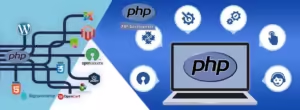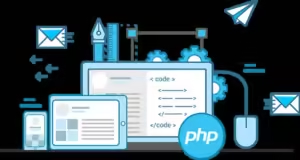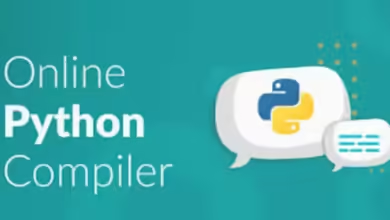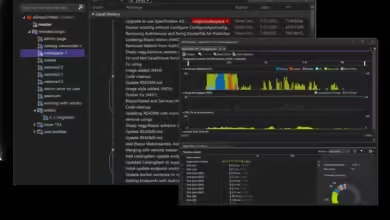PHP Web Development: A Comprehensive Guide 2025

PHP Web Development has long been at the core of dynamic websites and web applications, empowering both simple sites and massive platforms like Facebook and WordPress. If you’re curious about how PHP plays a role in web development or wondering why it remains popular, you’re in the right place. This article will dive into PHP’s essentials, its benefits, tools, and a step-by-step journey for anyone eager to start with PHP Web Development.
Introduction to PHP
Hypertext Preprocessor, or PHP, is a well-liked open-source scripting language designed especially for web developers. Known for its versatility, PHP allows developers to create dynamic content that interacts with databases. But why PHP? PHP stands out because of its ease of use, widespread support, and strong integration with HTML, making it perfect for new and seasoned developers alike.
What is PHP Web Development?
When we talk about PHP Web Development, we mean the process of building web pages and applications using the PHP language. PHP enables developers to write code that the server can interpret, allowing it to send dynamic responses to users. It’s the “behind-the-scenes” powerhouse, making it possible for websites to serve customized information, manage sessions, and handle databases efficiently.
Why Choose PHP for Web Development?

PHP has been around for decades, but why does it still hold such a dominant place? Here are some reasons PHP remains a preferred choice:
- Open Source: PHP is free to use, and it has a large community constantly improving it.
- Easy to Learn: Its syntax is simple, making it beginner-friendly.
- Cross-Platform Compatibility: PHP is compatible with Windows, Linux, and macOS, among other platforms.
- Database Support: PHP easily integrates with databases like MySQL, PostgreSQL, and others.
Just like a versatile toolbox, PHP gives developers everything they need for web development.
Setting Up Your PHP Environment
To start building with PHP, you need a proper environment setup. The process is straightforward:
- Install a Server: PHP works best with servers like Apache or Nginx. You can install these individually or use a bundle like XAMPP or WAMP, which includes Apache, MySQL, and PHP.
- Install PHP: Make sure PHP is up to date on your computer.
- Text Editor or IDE: A good code editor, such as VS Code or PHPStorm, will make coding easier.
With this setup, you’re ready to start coding!
Using Operators in PHP
Operators in PHP help perform operations on variables and values. Common operators include:
- Arithmetic Operators: Addition (+), subtraction (-), multiplication (*), and division (/).
- Comparison Operators: To compare values, you can use operators like ==, !=, >, and <.
- Logical Operators: These include AND (&&), OR (||), and NOT (!).
Think of operators as the “actions” that help manipulate your data in meaningful ways.
PHP Frameworks: Which One to Choose?
Frameworks streamline development by providing a set of tools and libraries. CodeIgniter, Symfony, and Laravel are well-known PHP frameworks. Each has unique strengths:
- Laravel: Great for beginners and highly scalable.
- Symfony: Known for flexibility and robustness.
- CodeIgniter: Lightweight, best for simpler applications.
Choosing a framework depends on your project needs and your level of PHP proficiency.
Best Practices for PHP Web Development

To ensure code quality and maintainability, follow these best practices:
- Organize Your Code: Use folders to separate files logically.
- Sanitize User Inputs: Always clean inputs to prevent SQL injection.
- Error Handling: Use try-catch blocks for managing errors effectively.
- Use Comments: Comment your code to make it understandable for others and future you.
Adopting these habits early on will save time and prevent headaches down the road.
Common Errors and How to Avoid Them
Errors are inevitable in coding. Common PHP errors include:
- Syntax Errors: A missing semicolon or bracket.
- Using a variable: that hasn’t been declared is known as undefined variables.
- Connection Issues: Incorrect database credentials.
To avoid these, always test your code and use tools like PHP error reporting.
Future of PHP Web Development

Despite newer languages emerging, PHP continues to be relevant. With constant updates and an active community, PHP is expected to remain significant, especially for web applications and content management systems.
Conclusion
PHP Web Development remains an invaluable skill, providing opportunities to create dynamic and powerful web applications. Whether you’re starting out or looking to deepen your understanding, PHP’s flexibility and extensive resources make it an ideal choice. Now that you have a solid overview, it’s time to dive in, experiment, and build your projects with PHP!
FAQs
- For what purposes is PHP utilized in web development?
PHP is used to create dynamic content, interact with databases, manage sessions, and perform server-side operations essential for web applications.
- Is PHP difficult to learn?
No, PHP is known for its simplicity and is beginner-friendly, making it accessible for those new to programming.
- Can PHP be used with other programming languages?
Yes, PHP often works alongside HTML, CSS, JavaScript, and SQL to create full-featured websites and applications.
What is the best framework for PHP?
Laravel is popular for its beginner-friendly design, while Symfony is known for flexibility. The best choice depends on your project requirements.
- Does PHP have a future in web development?
Yes, PHP is constantly evolving, and its widespread use in CMS platforms ensures its relevance in web development.
Read more : Regularizer Machine and Deep Learning





